Cure, Remission, Recovery – Not Just a Play on Words!
There is much information out there on how to diagnose Fibromyalgia Syndrome (FMS) or Chronic Fatigue Syndrome (CFS) (also described as Myalgic Encephalomyelitis or ME). And whilst a diagnosis can be elusive for many people suffering with this illness, there is certainly no doubt for them that they are ill, even if their doctors, family or friends don’t always share this certainty.
But there is little talk about how to identify if you have recovered from Fibromyalgia or ME/CFS. Perhaps because so many people including doctors will simply make the assertion that recovery isn’t possible, a negative belief shared by many long-term sufferers of the illness. (admittedly, I was one of these!)
Well having recovered myself after 6 years of illness and having spoken to people that recovered after decades of illness, I no longer share this belief. Of course, not everyone is easily convinced by hearing recovery stories, and with good reason! Because,
Many so-called “Recoveries” are little more than symptom suppression and management!
People often hear the word recovery and quickly say
“There is no cure for ME/CFS and there is no cure for Fibromyalgia”
So what is a cure for fibromyalgia or ME/CFS? What is remission or relapse? And what is an accidental recovery as I describe it?
People will have different definitions and different views, so here are some definitions that Wikipedia currently offers:
A cure is the end of a medical condition; the substance or procedure that ends the medical condition, such as a medication, a surgical operation, a change in lifestyle, or even a philosophical mindset that helps end a person's sufferings. It may also refer to the state of being healed, or cured.
A remission is a temporary end to the medical signs and symptoms of an incurable disease. A disease is said to be incurable if there is always a chance of the patient relapsing, no matter how long the patient has been in remission.
So cure is an “end” of a medical condition which implies that there is no chance of the patient relapsing.
In my mind, the word cure also suggests a guaranteed positive result as well as a single treatment that works for all people. This is why I am not comfortable with this word for Fibromyalgia and Chronic Fatigue Syndrome or ME.
But when I think about, are there really ANY conditions that have a cure under that definition? Cancer, heart disease, depression, MS, ALD, AIDS, Diabetes, the list is nearly endless. None came to mind for me, so perhaps the word cure is a misnomer. Even for simpler things that such as bacterial infections where effective antibiotics exist – does it guarantee that the infection will not come back or that re-infection will not occur again?
So given that nobody knows of a “cure for Fibromyalgia and Chronic Fatigue Syndrome" that works the same for everyone, perhaps the words remission is more appropriate. However, the word ‘temporary’ in the definition is obviously very negative and not necessarily correct. Because of course there is no guarantee that a relapse will occur, so how can we call it temporary?
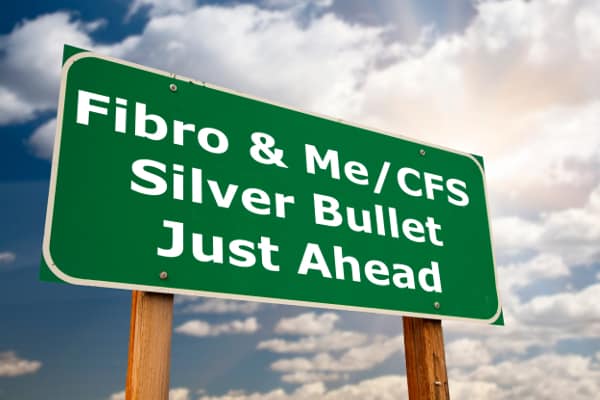
My preference is for the word recovery.
So what do I mean by recovery? A recovery is a restoration of health or functioning according to Wikipedia. So we are talking about being asymptomatic – sounds pretty good right? Better than cure in fact because even if you are ‘cured’, doesn’t mean that you have a restoration of your health.
And a recovery can be full or partial.
But how do you measure it?
In the end, no matter what you say, it is going to be somewhat subjective. And in that lies the power of the sceptic.
Don’t get me wrong, I have no problems with sceptics. I am sceptical myself, pathologically so in my later years of suffering with ME/CFS and Fibromyalgia. Frankly, I think it is perfectly reasonable to be sceptical and I think most of us who have had the illness have earned that right through countless trials and tribulations. But the questions is; Does this scepticism serve us?
I think it depends on how far we take it. Given that there are way too many claims of treatments or explanations for our symptoms that frankly either lead nowhere, or provide temporary covering up of symptoms only, a healthy dose of scepticism makes sense. And anyone who has gone through what seems like a never-ending bleeding wallet for tests, treatments and empty promises, all whilst having a very limited income due to their inability to work, has to find some way of dealing with things.
But it can go too far. Way too far! And when people make a full recovery and people say that they hence never had the illness or had something else, that is too far in my view. There is no scientific basis for such claims.
I think most of us find it offensive that given that we have to ‘prove’ our invisible illness with the medical community for so many decades and have been labelled as depressed or hypochondriacs, that finally now when people at least recognise it as a real physical illness, that some within our own ranks would stoop to accusing each other of never having had the illness, just because they got well again.
But I do agree that people often haven’t actually recovered when they claim they have!
SO WHAT IS RECOVERY FROM FIBROMYALGIA/ME/CFS?
In previous blogs, I have summarised some the main symptoms of ME/CFS/FMS. Some people have lots of various symptoms and some people have few. Clearly many of us find it to be an ever-increasing list over the years and we often see how Fibromyalgia pain and Multiple Chemical Sensitivities get added to the collection of symptoms of ME/CFS.
But if you cover up your symptoms using a range of medications, hormones and supplements that reduces your symptoms to something resembling normal – is that recovery?
Not in my mind.
For instance, let’s look at obesity. Regardless of whether you agree with the American Medical Association classifying it as a disease, is dressing in a corset covered my flowing black clothing which all makes you look slimmer a cure or a recovery. Clearly not!
I have come across people who tell me they are recovered and rattle of 20 supplements, regular IV infusions, hormone treatment and so on and then say that they can function fairly normally again. That is not a recovery, that is a chemistry experiment!
Or some people manage to reduce their symptoms by severely limiting their physical and mental activity. They avoid all stress, eat the “perfect diet” and stay strictly inside a very limited physical activity envelope. In fact many people do this over the years to manage their symptoms and limit the severe fibro flares or bouts of symptom exacerbation. Does anyone see this as recovery? Some people do, but not I.
To me, a recovery means that your body’s function is restored to allow it to cope with the normal activities associated with full-time work and an active lifestyle that includes doing social activities and exercise, as well as eating a normal diet (normal not meaning good!)
But being symptom free whilst maintaining a reasonable diet and reasonable lifestyle (you know, work rest and play) with a few supplements, surely can still be seen as a recovery. The question is about how much support and diet restriction exists and how much stress management or lifestyle limitation exists. But trying to quantify that is difficult and agree on an exact formula may be difficult.
Yet I would hope that we can all agree that getting your life back, being able to be symptom free and able to work full-time, enjoy all the normal social activities and reasonable exercise (perhaps not ultra-marathon running) all without relying on any medication has to be seen as worthwhile. Surely, regardless of whether we term it partial or full recovery, THAT has to be seen as FANTASTIC, right?
I wonder if sometimes we lose perspective of things when we have suffered with the illness for too long?
I remember when I recovered it became pretty clear that I stopped getting the bouts and my symptoms had reduced to a point where I thought they were gone. But whilst pain, fever, insomnia, gut dysfunction, brain fog and so many other symptoms are clearly identifiable, others are more difficult to quantify.
The two that come to mind are general malaise and energy. Even a year after I had fully recovered, I noticed that I felt more energetic and that my health felt more robust than before. So did I just become fully recovered now, or was I fully recovered 12 months earlier?
My view is that we just don’t have a reference of what is normal after so many years of illness. Besides that ‘normal’ for many people is far from being vibrantly healthy. When I came out of my ‘lost decade’, I suddenly was 10 years older, severely deconditioned with severe muscle loss and no cardio vascular fitness. What was I comparing to, the old self?
But then you keep wondering, how much better can it get. Well, average Joe next door that never had the illness could be asking the same question! What is their health like? Could they have more energy? Could they have a stronger immune system? Probably yes. But because they have been symptom free, they don’t constantly consider this and scrutinise this. In fact, let’s face it, most of us were that average Joe (or Jane) before we got ill.
So whilst a one-fit-all single treatment magic “cure” for ME/CFS and Fibromyalgia may not be available now or ever, I can say that recovery is definitely possible. Regardless of what some people say, if you look at the symptoms and experience of many people that are bold enough to claim recovery, you can clearly see that they really had ME/CFS/Fibromyalgia. But for some people, clearly no matter what is put before them, they will remain sceptical. It may feel like a safer place, oversceptical attitudes are a road to nowhere.
And whilst many people experience what I would call an accidental recovery (a recovery where they don’t know WHY they recovered), I believe that those that recover understanding WHY they got ill and WHY they recovered have a much stronger chance of never relapsing from their “remission”, as long as they continue to value and treasure their health and live a normal healthy lifestyle full with all the experiences that life has to offer.
In my mind recovery of health has to be about your body functioning well and giving you access to the experience of good health without being reliant on external powerful drugs or severe lifestyle restrictions. The ugly truth is that getting hung up on whether there is a cure for fibromyaliga or ME/CFS, or wether there isn't, or whether recovery is possible or not, could waste years of your life needlessly. My message to everyone is to just focus on getting your health back.
Some images for sharing on social media:
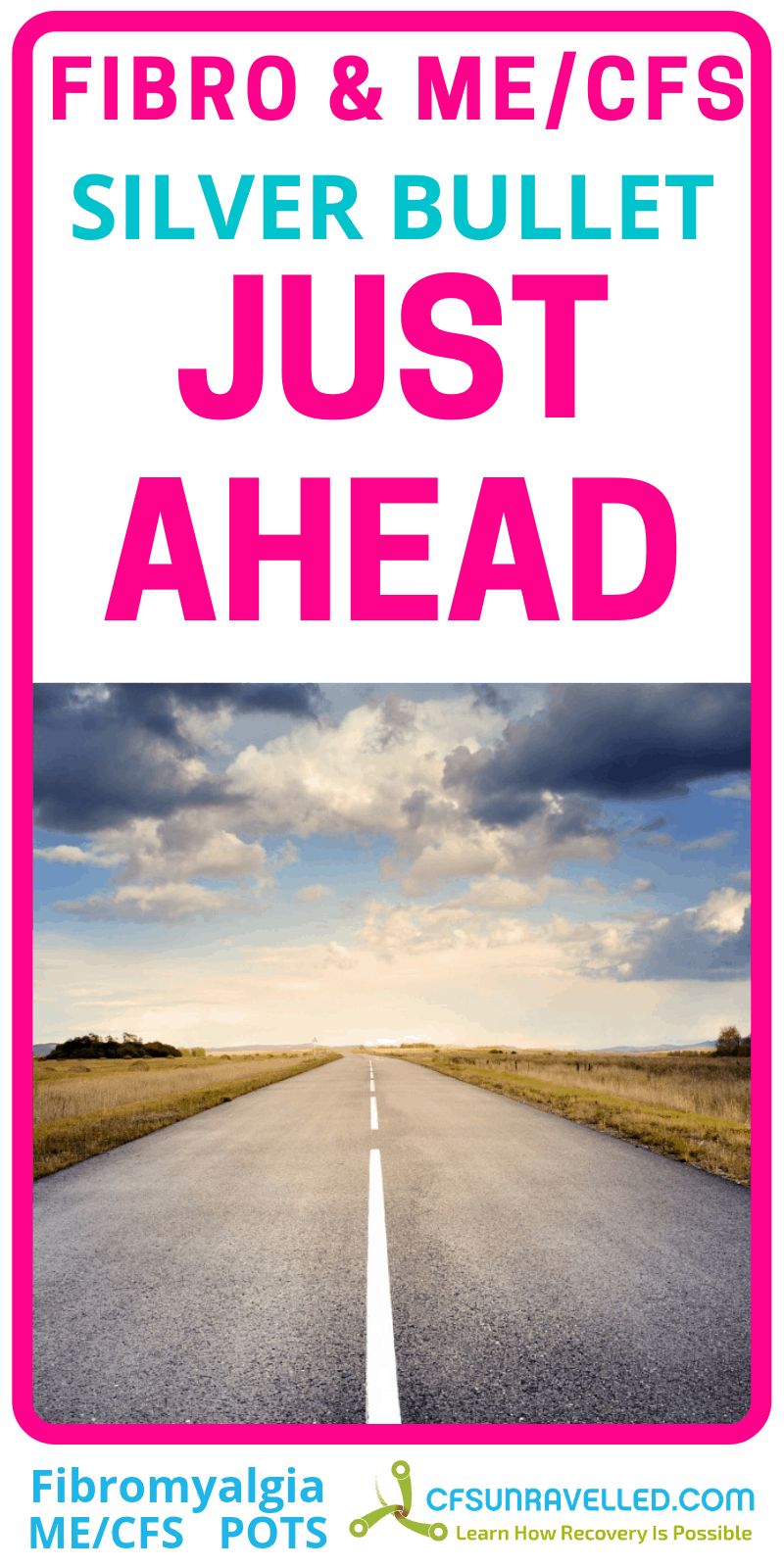
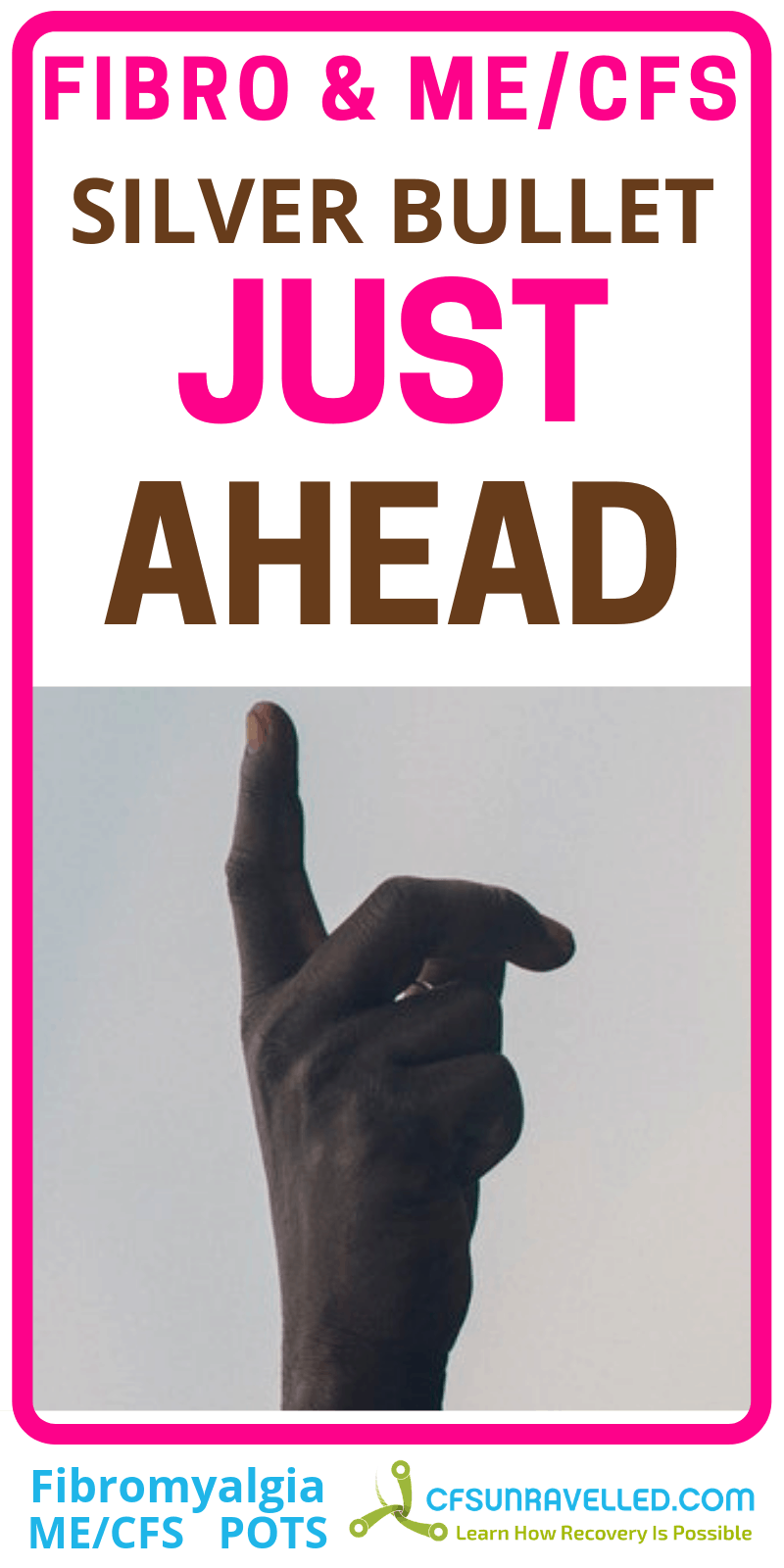
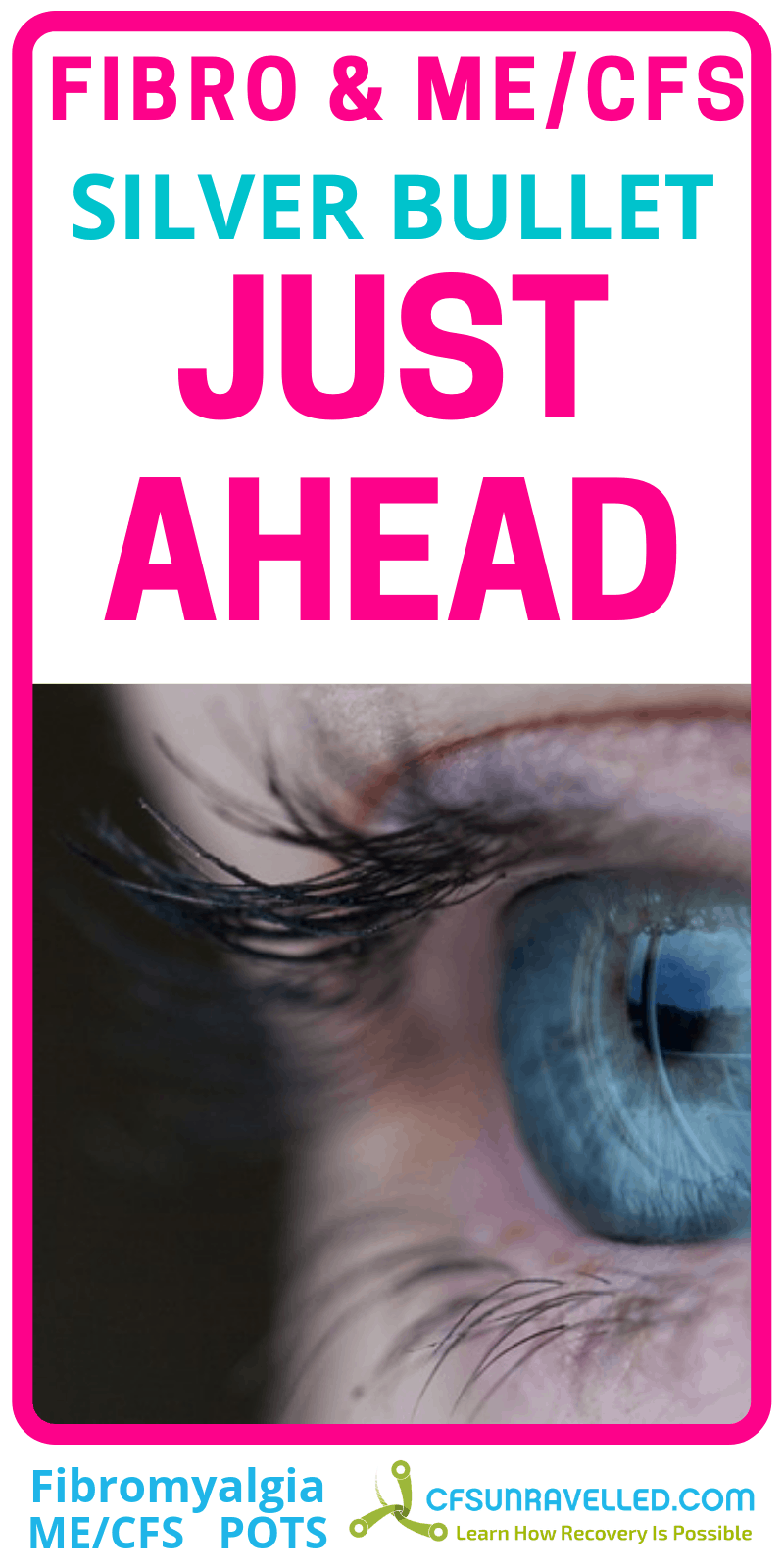

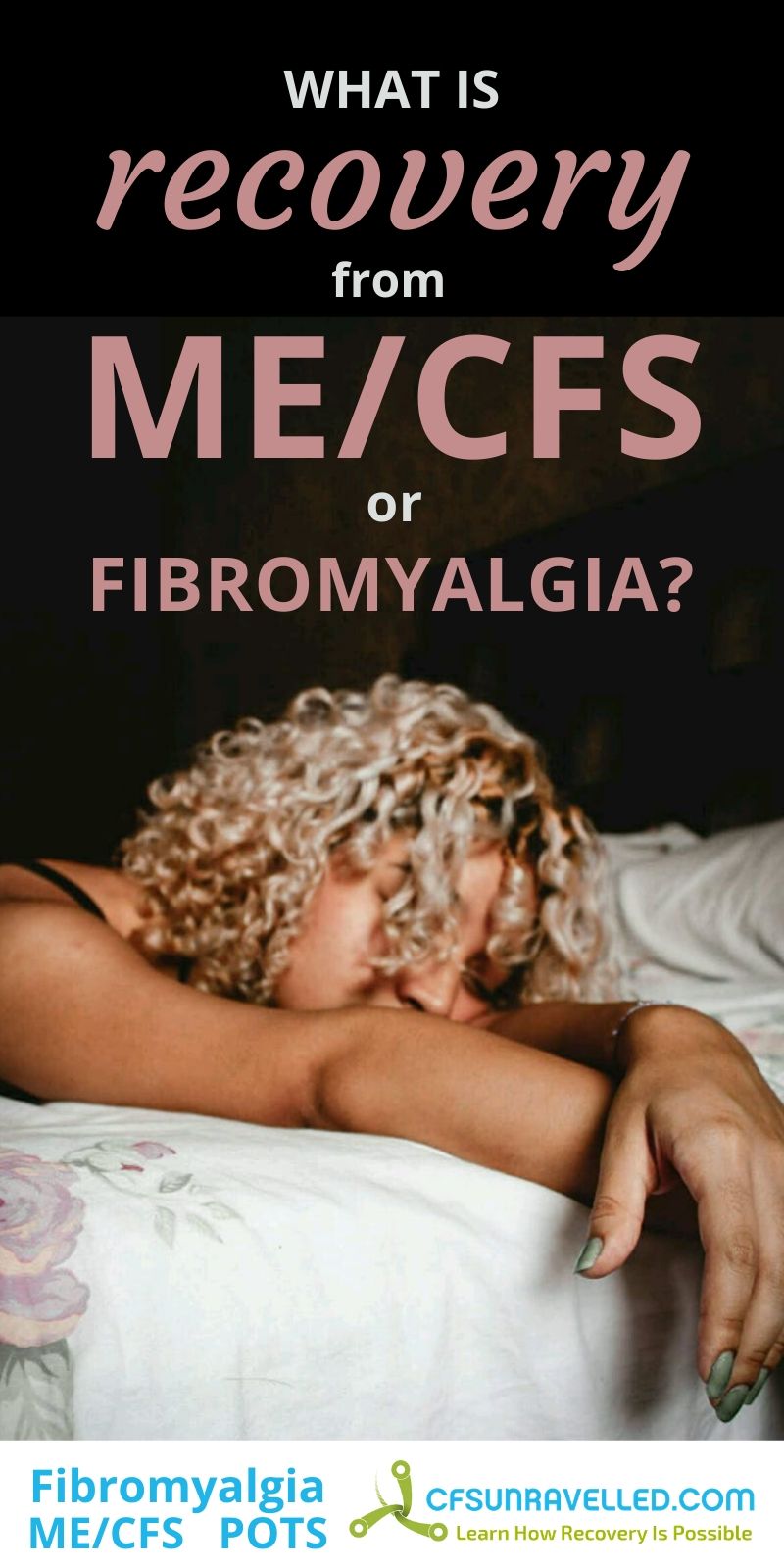
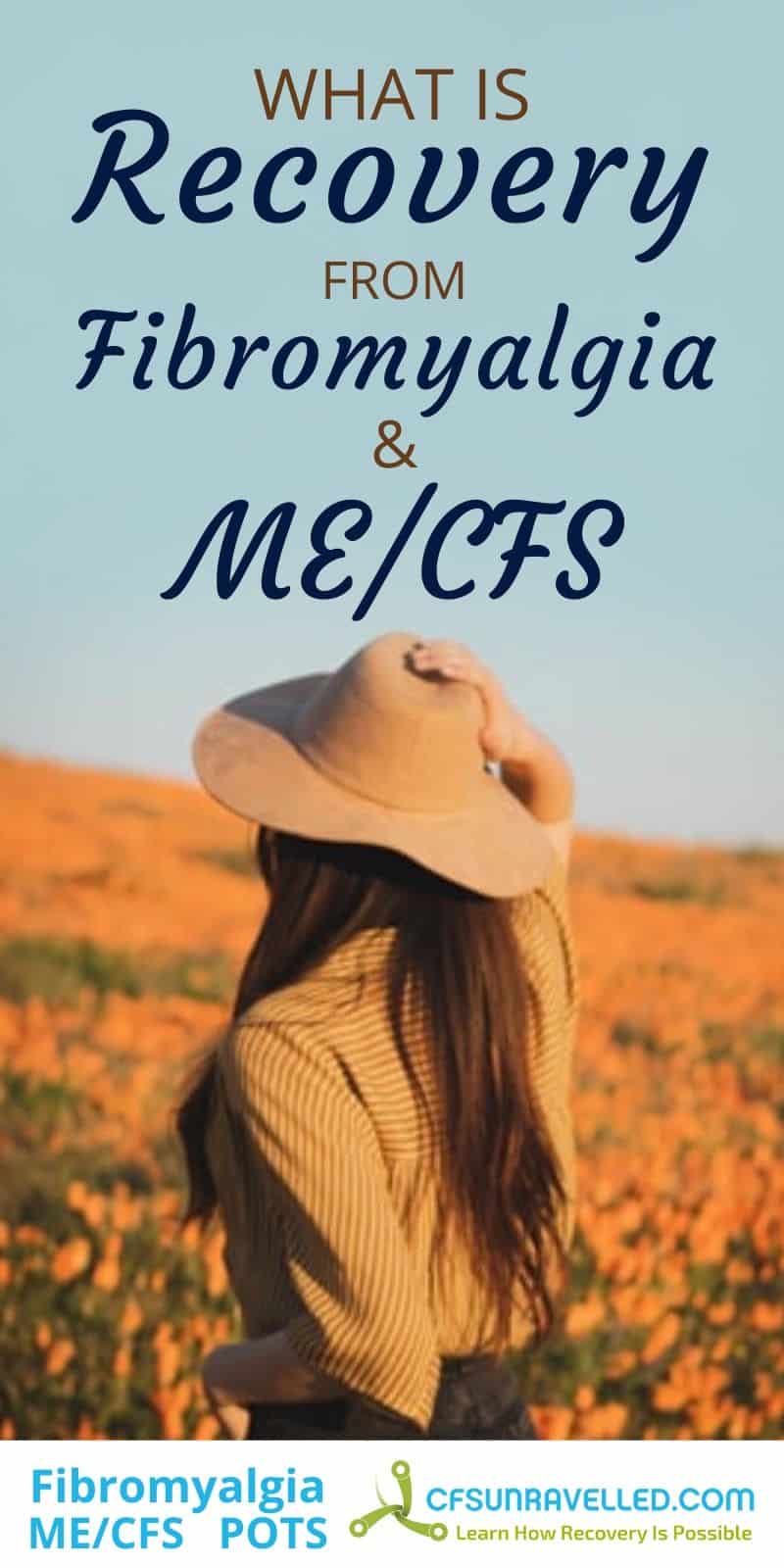
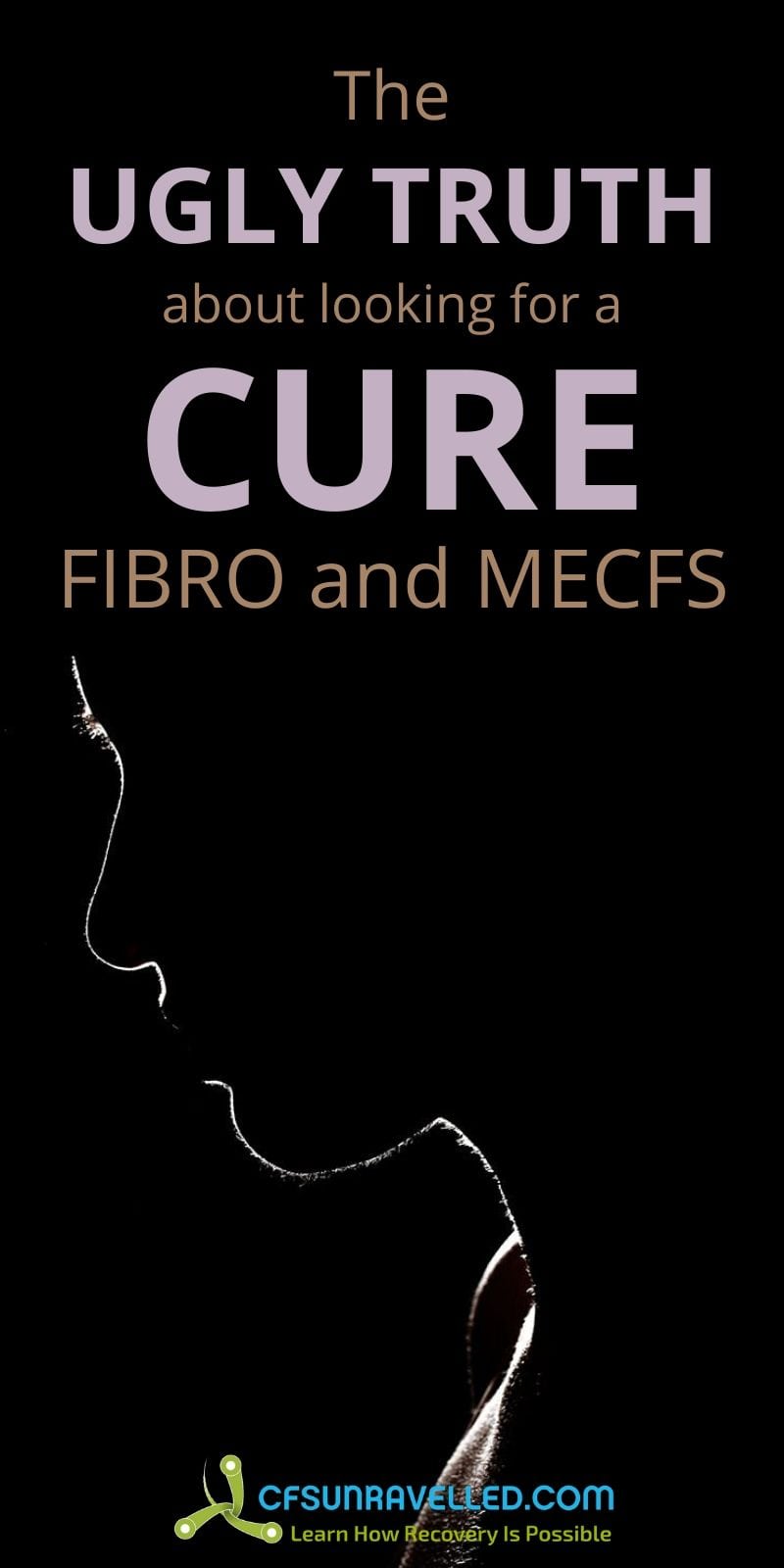
I’m definitely in recovery. I also don’t resonate with the word ‘cure’ as it does infer something which isn’t a process but a ‘quick fix’ like taking a pill, and we all know that’s not how it works with this illness as you’ve quite rightly pointed out. I also have 3rd stage chronic Lyme Disease, which I contracted in 2004, but wasn’t diagnosed til 2008 after becoming bedridden with ‘severe m.e’ (my official NHS diagnosis) in 2006. It’s complicated because I do have both conditions and I had been suffering from the former in mild to moderate form for most of my life previous to contracting the Lyme. But there are so many components to the illness of M.E. alone, never mind Lyme, that to suggest there is a cure would be grossly inaccurate, although it may be acceptable to say that there are many cures for the many different stages and expressions of the illness, possibly as many as there are types of individuals, all of whom are at different stages of those expressions, or recovery journeys.
I know personally that recovery is possible, because with the severity of my own illness, from literally not being able to sit up or even look at a written sentence without crashing, never mind work a laptop or watch t.v., for example I can now spend several hours reading or writing, can sit for longer periods and my stamina is increasing all the time, albeit slowly. It has taken over 7 years to get this far but that doesn’t matter, now, and so far I have spent all my 40’s in bed, lol! But the way I look at it is that I could have spent those years enslaved in an insufferable job or being a drug addict, in a war torn region, or being in an abusive relationship…. I don’t think about the positive things I could have achieved or may have missed out on because that’s just counterproductive. I’ve never been to the moon either, but so what? It’s probably inhabited by unfriendly aliens, anyway, haha. The point is we should not live in the past, have regrets or feel bitter about what we’ve missed, but be able to look back pragmatically relative to our illness only to assess how far we’ve come and if we need to change our own treatment plan, what is working, what isn’t, etc.. Essentially, the progress I’ve made is all the evidence I need to know that recovery is possible, and I have every confidence I will keep making the right choices for myself, trusting my own instincts and intuition as guidance. 🙂
Thanks for the fantastic comment.
I have learned that having a positive attitude is key to recovery, and you seem to have that in droves. To be honest, I expect I would have had success much sooner if I could have managed to be more like you!
Wishing you all the best with your ongoing recovery! 🙂
I think whatever level of recovery you are at, it’s important to be realistic about capabilities, so you don’t set yourself back. With this illness, I think it’s easy to find ourselves in an in between situation opp on, so much better than before, in terms of commitments, cognitive activity.
But realistically I see there’s a huge difference from being fit for full time work, and managing well at home. It may be easy for somebody to think they can do full time, then find its a big mistake. So many people can’t socialise as well as work, spend the rest of the time in bed. But to the outside world he/she may be recovered/cured.
So the more I think about it, even when we get to the point when we think out health is the best in years, I’d say don’t do full time work. That way there’s time to rest up, and keep something back. It’s not just managing routine and commitment, it’s managing at times of mishap, getting a cold or a family bereavement, and I’d say you should take the time out.
I’ve sadly known people who’ve apparently recovered, been working full time, or not working but been busy with family going here, going there…. Then a huge relapse occurred and fallen I’ll like before.
I’ve worked and fought hard to get decent thyroid treatment, adrenal supplements, vitamin d, other supplements, medication for pain and migraines, an experimental antibiotics protocol, trying gel pads for balls of feet pain. I’ve done so much and I’m so much better than before but I’m not cured because I still get the post exertional fatigue. I read the person before me here had treated Lymes. So these are the known things to treat, because with an underlying treatable illness, there won’t be recovery. So it’s important to see what can be done and not take things on face value that there’s nothing that can be done, always ask what’s next…
Thanks for your thoughts Fiona
I hope that my story might be helpful in the context of cure /recovery . I have had CFS for 25 years and developed Fibro five years ago. When I was initially diagnosed with CFS I had a year off work. I was also a single parent at this time, and for the next five years or so I had recurrent relapses of varying degrees of severity. I was lucky in that as an academic the work that I did was not tied always to my place of work, and that I could be flexible to some extent in terms of when and how I worked. I also lived very close to my work so didn’t have the stress of long commutes etc. As time went on relapses continued but were less bad and I learnt to manage them better. I have always had a good diet. My appetite has not been affected by the illness, which is significant I think. I have used acupuncture regularly and take supplements. I have also been on Dosulepin for quite a long while. I take it at a very low dosage but up the dosage when in relapse. It definitely helps with my sleep patterns,
I developed fibro five years ago, after a period of intense stress. I had moved house after 30 years and was in a very difficult situation at work, also my son had moved back in with me for 2 years whilst doing further study. These things combined to an overload which resulted in my illness worsening. I retired from work at this point. However I recently discovered that my mother also had fibro, then called fibrositis – so there is a genetic predisposition. I am in a fibro relapse at the moment after a chest infection. I had been much better for 6 months before this. I remain positive. I have also come to the conclusion that each person’s illness has its own pathology and whilst there are obvious common factors which are beneficial , such as relaxation, diet etc I think each of us has to find our own particular way through. I am quite extrovert and enjoy stimulation, (although I can also be happily solitary), but the balance for me of some work along with measured relaxation, allowed me long periods of relative remission. I also find that I am emotionally sensitive and that some people can be exhausting to me and make my symptoms worse. This can be difficult as these people can sometimes be those who you care for most, and it is a matter of somehow ameliorating the effect they have on you. I found some counselling helpful with strategies to help with this
Mine isn’t the perfect story as I am here now dealing with the old familiar symptoms. However I have had a full and rewarding life for much of the last 25 years. I have learnt to take pleasure in small things, to accept loss more easily. I will be a grandmother for the first time in the next few weeks and look forward to the joy that will bring. I remain positive. Life is short and somehow despite the illness I am determined to enjoy as much of it as I can., Courage and joy are my axioms in life.
thank you for your comment Hilary. 🙂
I’m 64 and a man who, after many years of searching, finally realized I am a victim of Fibro. As I’ve gotten older, I’ve come to realize that I’ve always had background pain. But, I suppose it’s a survival mechanism to push it into the background and keep going.
It wasn’t until I was 60 or so that I realized I had a “woman’s” affliction. No, I’m not a sexist. I finally found a doctor who would help me and diagnosed my problem. I’m surprised at how many doctors don’t or won’t admit that Fibro exists.
I’ve been taking Vicodin for 10 years or so and the dosage has constantly been raised as my body gets used to the dosage until I’m up to 10Mg 6 times a day. Yes, I function quite well with that much drug on board but the pain gets quite acute between the doses and I find myself searching for the easy chair. I don’t want that! I want to stay active and I want to create things in my studio.
Lately I’ve been working with a pain management clinic to try to compartmentalize my pain. We’ve been studying my spine for some keys to why my pain comes and goes. An MRI of my lower spine shows that I have spinal stenosis, which is a narrowing of the canal where the spinal cord lays in the spine, at each vertebra. The doctor noted that it’s unusual to see spinal stenosis at every vertebra. I’ve always wondered why my back hurts between every vertebra and now I have some answers.
I know it’s sounds extreme, but I had cortisone injections near the Sacral nerve in my hips which has given me a great deal of relief. And, I can move again!!! Be warned, if you explore this type of treatment that the shots hurt like HELL; but, the relief is instantaneous.
Our next exploration will be an MRI of my upper back to map out some treatment for that area. I’m hoping that I can reduce my Vicodin intake to a more reasonable level.
So, my advice to my fellow Fibro sufferers is this: Don’t let it beat you! Keep going as much as you can. If you need to rest occasionally during your day, don’t let the pain make you a prisoner of your easy chair or bed. If you give in to the pain, it wins.
Dan has my permission to give out my email address if anyone need to talk about Fibro.
Bob K
Hi Dan, I think that your analysis of the problems with ‘cure’ is very accurate. For most things there is no ultimate ‘cure’, meanwhile so many people are hanging onto hope for something that might not ever arrive and rejecting out of hand anything that doesn’t look like a cure in a one-shot pill/injection/surgical (i.e. traditional high-tech medicine) form. And I think that its very sad that people are so threatened by others’ recoverys that they feel the need to deny their experience (which I have myself experienced. It means that as soon as people get better they may turn away from the ‘community’ instead of sticking around to support those still struggling. But I am also aware that “my path is not your path” (& VV) and try not to tell others how to think or live. Keep at it, I think that you are doing excellent work here.
Im a great believer in mind over matter. But sometimes when pain is so bad it hits you like a ton of bricks. I feel really positive about starting recovery. I have trigger point injections every three months and want to reduce this to every six months then no more. I am at the moment using the stretching to excercise keep your fingers crossed you have all made me see I am right I will recover thanks love positive people
About 5 years into the ME I decided to say “I’m recovering from ME” rather than “suffering with”. I think psychologically I needed to boost my morale! About a year ago I got help from the Optimum Health Clinic and realised that the NHS had been giving me the wrong advice for 14 years. The NHS basically would say, ignore your symptoms, push through, increase activity, it’s imaginary, you’re having ‘incorrect thoughts’. I did my best, not realising it was the worst thing for me. Blindly pushing through because I felt guilty is the reason I kept relapsing.
Now I use mindfulness to really listen to what my body needs and I mentally talk to my body and areas of pain. This has enabled me to pace better, understand my body’s needs, which has meant I’ve improved my diet to more nutrient rich foods, supplements, more adequate rest time, more appropriate activity. The testing and knowing I had actual physical problems that needed sorting really helped, especially that relief of guilt that I was ill because of my ‘incorrect thinking’. I have done so much CBT and I think this limited my recovery looking back. The whole body mindfulness seems to really help me more. I feel like if I look after my well-being (body mind & soul) as best I can, it gives my body the tools it needs to heal. Having that one focus has really helped me relax, ironically.
I am making so many improvements now. Rest is actually starting to replenish my energy and I am more and more in the moderate zone than the severe zone I’ve spent so many years in. I can sit up and type!!!! 😀 I think being ‘wellbeing focused’ is much kinder on me than the striving to be ‘cured’, it not working and feeling bad thing I was doing before. I’m feeling more empowered and spend my rest time, visualising wellbeing. Something I had difficulty doing at first as I had forgotten what it was like to feel well (14 years ill is a long time!) so I started to remember & visualise being happy and grew it from there. I’m probably the most optimistic I’ve ever been. Striving for cures can be so painfully disappointing, waiting for them is disempowering. Just being with my body in an honest way and focusing on all round wellbeing feels like a path to more wellbeing. I don’t feel so bad about bad patches, I call them ‘healing time’, ‘recovery time & ‘extra rest’ patches now. I don’t think we should be too hard on ourselves, this illness is hard enough as it is!
Thanks for your excellent comment Jen.
“ignore your symptoms, push through, increase activity, it’s imaginary, you’re having ‘incorrect thoughts'”
REALLY? I mean; REALLY?
Seriously, it seems crazy that we are still having to have this discussion about the illness being imaginary. I am growing so tired of these ridiculous notions – and I am recovered – I can’t imagine how annoying you must find this.
I can’t really say it any other way; sugggesting the symtpoms are imaginary is nothing but downright stupid. It’s not ignorant, it’s just silly.
Sorry you still have to put up with this sort of thing in this day and age.
Your attitude and approach sounds great. Keep aiming for full recovery!
🙂
Hi can you explain me more about recovery process pls I been suffering from all the sumptuous since I was 20 year old none of the doctor listen to me because I had untreated hyperthyroid for year’s and I put on weight they thought I was just making this they didn’t even take me seriously now I am 26 year old mother starting to suffer from sebo also I want be best my self and for my little boy pls forgive for my English and thank you very much I finally found out what I am suffering from thank you Very much
Recovery is not from a single treatment – it’s by a multi-lateral approach.
I suggest you start by watching this video series: https://cfsunravelled.com/1-the-root-cause-of-mecfs-fibromyalgia-pots/
Jen’s comment and Dan’s reply! Nice One 🙂
The NHS (or rather those that assemble normal proceedure for treatment) are unforgivably dragging their feet on this area when it is clear that the knowhow to deal with the condition is already far advanced from cbt, get, and pacing alone! The nhs has an opportunity to lead in this area that would trickle down arround the world like soft summer rain. Sadly, we plebs no more deserve that than we derserve to be guided by honest , unselfish politicians! Dan, you never cease to amaze me with your informed writing on this subject. Well done! I am slowly recovering (3 yrs in) from cfs/me because I imeadiatly understood the scientific explanation you gave in CFSU thus leading to only a short dip in the ‘Egyptian water’ before changing my life style to place myself in a good place for my body to start repairing. I have no noubt that a chemical series of switches will be found to aid patients recoveries in future, but for now the longer, pma/listen and be kind to your body approach is king. DG xo B-)
Hi Dan – great to hear about your progress – make sure you keep going! The key to effecting neural plasticity is a consistent approach until you effect the desired changes! 🙂 Dan
As I chronicle my healing journey with words and insightful images at Boomer Muse, I’m struck but the confusing array of labels and terms. My message: we are not our illness or letters, CFS, ME etc. I refuse to let an illness define me and focus on wellness instead. If you’d like to partner with me to share my motivational photo quotes, let me know.
Hi Layla,
Of course we are not our illness and commend you on focussing on wellness!
Thanks for your comment.
Dan
enjoying your videos and info – thanks !
Good to hear Jen – thanks for the feedback!
Maybe I missed it, but there really isn’t any way of telling if there is a cure. Just depends on how you look at it
Hi Alex,
There is no ‘cure’ in the sense of a magic bullet that works for everyone, but people can become fully well again.
I’ve have Fibromyalgia for 27 years. Type A personality. I believe that my mother who died at 52 had it and that one of my sisters has it, but is of old school that they show no pain, yet cannot see their world collapsing around them. A farmer she became so tired she allowed many baby lambs to die because she simply could get out of bed. Allowed is incorrect, the word should be incapable. She feel on her neck, had many traumatic events prior such as death of our parents and brother. My daughter has just been diagnosed and hasn’t been able to work for two years.
I believe the biggest problem is depression, because we cannot be who we were. I have never been cured. I stayup for days and then sleep for days. My pain level is directly correlated to the weather. I live where the temperate can vary up to 20 degrees in a day. I cannot breath in humidity and our summers are all high humidity. I have been to a pain clinic, had and recovered from two cancers, lymphoma and leukemia, the later being chronic. Granted on some days I can accomplish more than other and that may be what you call recovery. it never last more than a couple days. I refuse to live on supplements or eat crazy foods. grew up on a farm, working very hard, eating our own vegetables and meats grown by ourselves. my diet my include more produced goods that when I grew up but I try not to incorporate same.
I’ve volunteered a lot, and then just had a major crash where I cannot function in the way Idid the first 20 years. I developed two cancers, almost died from Ludwigs angina and still suffer from Chemo brain(significantly different than fibromyalgia). Four years later and I don’t have the energy at all. While I paint, study history, I quickly forget what I have learnt. I’m not going to be an experiment.
The first year I went to over 60 professionals and was fortunate to being diagnosed so quickly. I had a team, doctors, internist, dentist, physiatrist, therapy and the like. Isuffrered from debilitating migraines, TMJ and foolishly allowed my mouth to be “dyed and pryed”. My teeth have debilitated and had to be capped. I suffer from depression and panicked attacks.
So you see I find it advantageous for my daughter to think their is some wicked cure, I won’t allow her to go through all the medical experiments, yet try to keep her positive. While this can help with depression her finding out it was all a string of BS will put her back so far that she will/has not wanted to live like this.
So, in the end, I cautioned you to have clear facts, not emotions guide your research. Ultimately it can cause more harm than good. It took me five years to figure out that these cures were all about money. I will not allow her to be subjected to such nonesense. Have you suffered from FM or are you trying to make money? How long have you been better and did you have CO or fibrin the first place. Insomnia, IBS, TMJ, Migraines,depression or have you started a problem that ends tragically to the people you misinform? I have no idea if you work for a wellness group, nutritionist, pharmaceuticals, or insurance companies. Your article can be pure speculation, being that a lot of people still think the illness is a woman’s problem, a hypochondriac, etc. by you’re talking to people who want a cure. your article was vague at best with no facts as to how long you were I’ll, what traumas aided in your diagnoses. have you been to a pain clinic? Also, after 27 years I had both my stomach and colon checked, surprising that there were no problems with either.
Then again a lot of the tests came back negative. doctors threw Valium to women in the sixties because they thought it was all in their heads. historically speaking, doctors who don’t have answers qyuckly blame the patient. I have a great doctor who learned about FM and helped me cope. coping btw is not remission.
Please, continue and I will continue to monitor your posts with a very critical eye. try not to give hope to people because they crash when they find out that they have been lied too. Doctors who say people who smoke have grater plain levels than those who don’t. No studies, just subjective theories. I want to see actual studies because nobody rates their pain in the same way and doctors are working on highly subjective cases.
have a great day and please, ring some proof next time.
Hi there.
Thanks for your comment.
I would have thought that given that people do actually recover (listen to the recovery interviews), that clearly there is much reason for hope for anyone experiencing ME/CFS, Fibromyalgia or POTS.
There are lots of studies on this illness, just check out google scholar for whatever you are looking for. If you are referring to the ‘cure for fibromyalgia/ME/CFS/POTS’ then perhaps you missed the point that I was making, which is that there is NOT some magic bullet treatment that will miraculously heal you. Recovery is a process and if you listen to the recovery interviews, you will find that people recover in all manner of different ways. Furthermore, those specific ways, usually don’t work for other people. The key is to understand why that is occurring and that was always my aim with this website and the book.
Hope that helps you.
I want to know how you recovered. Please let us know. I know you explained the meaning of remission and recovery but didn’t explain how you got well. I just joined the group so I apologize if I missed the explanation
Hi Marina
Mine is the first of the all the recovery stories here: https://cfsunravelled.com/cfs-fibro-recovery-stories/
So how did you recover? What changed that made you realize that you were symptom free after 10 years?
Hi Shawna
I was sick for 7 years. I share some of my experience of recovery in the first recovery story(my own).
You can tell when you don’t have symptoms, but more importantly, you know you are recovering when symptoms don’t come back when you do things and are able to exert yourself.
Did anyone tired by getting rid of their pillow, and also elevate (an inch or two) their bed at foot side only? So that more blood flow would go to brain.
It reduced my Fibro pain.
A very interesting read. I’ve been diagnosed with fibromyalgia for 30 years, but I also have the ME symotoms, Hoshimoto’s thyroiditis for 20 years ago but I had the symptoms and a slight goitre fir many years before Dr’s would treat me. I’ve had/have at least 4 autoimmune disease. I am a carer for disabled husband and I’m worn out all the time and have pain quite a lot of the time, however, I live on the beach and always swam but 4 years ago I started to swim right through the winter. This has helped me regulate my pain better, I even reduce my pain meds by 25% under medical supervision. Eating live yogurt daily has calmed the IBS, but I can’t keep on top of most things.
Thank you for this site, I will read more and think about getting your book.
Glad it makes sense and is supporting you.
You might like to start with these summary videos about the explanation.